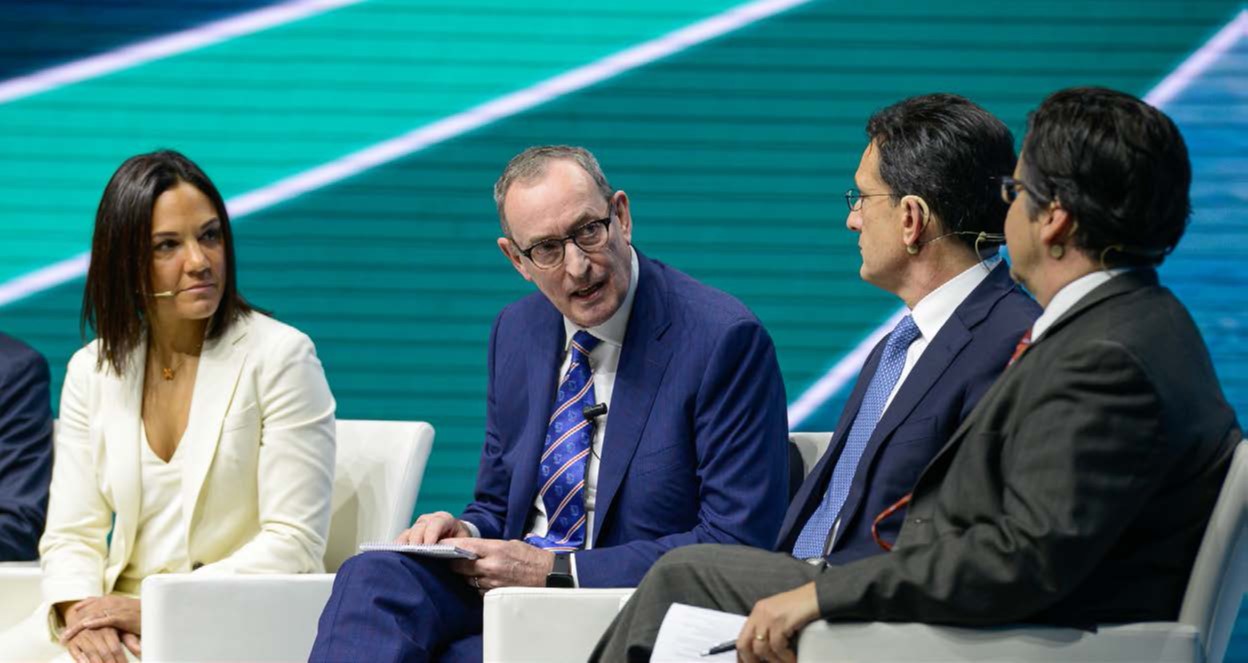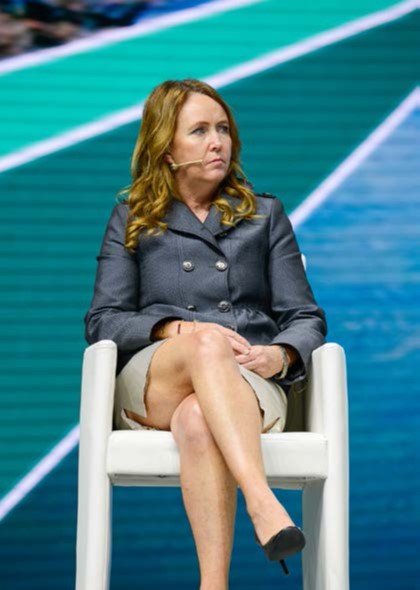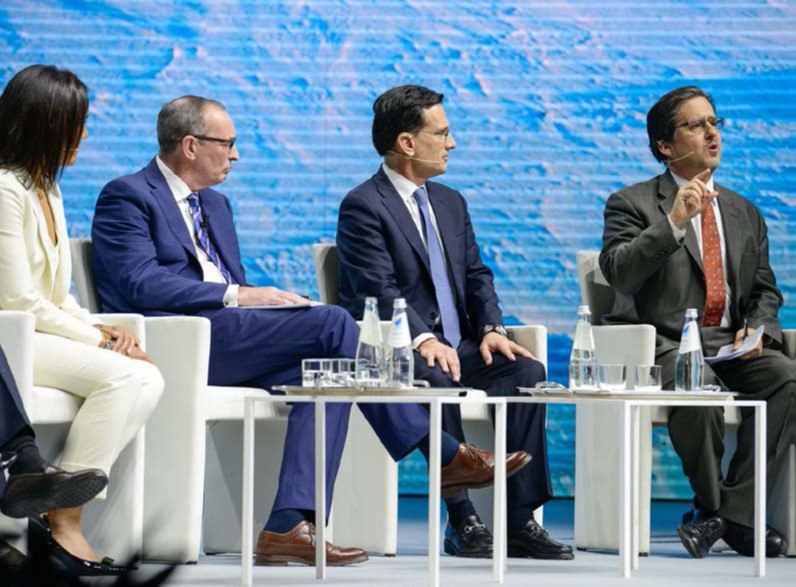-
Featured Solutions
-
Energy Transition
Energy technology to help the industry advance on the path to net-zero
-
Hydrogen Technologies
Advanced technologies to accelerate hydrogen deployment
-
Geothermal Solutions
Experience and expertise to redefine possibilities in geothermal
-
Carbon Capture, Utilization, and Storage (CCUS)
Integrated suite of solutions to capture, process, store, and monitor CO2 emissions
-
Emissions Abatement
Solutions to monitor and reduce emissions from industrial operations
-
Remote Operations
Digital operations, monitoring and testing capabilities to serve critical industries
-
AI by BakerHughesC3.ai
Enterprise-scale artificial intelligence for energy operations
-
Liquefied Natural Gas
Industry leading solutions for long-term reliability, availability, and project success
-
Industrial Technology
Solutions to improve efficiency and uptime in processing and manufacturing industries
-
Cordant™
Flexible and connected digital solutions for industrial machines, equipment, and systems
-
Mature Assets Solutions
Reviving mature Assets and accelerating impact through integrated solutions
-
Flare Reduction
Creating new opportunities for value recovery and efficiency in flare reduction.
-
-
Energy Transition
Energy technology to help the industry advance on the path to net-zero
-
Products & Services
-
Oilfield
-
On-Demand Solutions
-
Onshore Composite Pipe
-
Evaluation
-
GaffneyCline Energy Advisory
GaffneyCline Energy AdvisoryFrom high-level strategy to ground-level execution, trust a proven team of energy advisors to help deliver your projects with greater speed, certainty, and efficiency.
- Process & Pipeline Services
-
Drilling
-
Completions
-
Electrification in downhole completions
-
Maximizing Return on Efficiency
-
Completion Fluids
-
Intelligent Completion Systems & Flow Assurance
-
Gas Lift Systems
-
Isolation Valves
-
Liner Hanger Systems
-
Multilateral Systems
-
Multistage Completions
-
Packers
-
Perforating
-
Sand Control
-
Stimulation & Fracturing
-
Subsurface Flow Control
-
Subsurface Safety Systems
-
Tubular Services
-
Well Monitoring and Analytics
-
Electrification in downhole completions
-
Production
-
Integrated Well Services
Integrated Well ServicesOptimize your well operations with proven, comprehensive project management service and support
-
Processing
-
Subsea
-
Well Intervention
InterventionReduce the time and cost of interventions, from well construction to abandonment.
-
Surface Pressure Control
Surface Pressure ControlMaximize drilling efficiency with safe, sustainable, cost-effective well control
-
Decommissioning
-
Digital
-
On-Demand Solutions
-
Turbomachinery & Process Solutions
-
Gas Turbines
Gas TurbinesIndustry-leading gas turbine technologies for mechanical drive and power generation (50/60 Hz)
-
Steam Turbines
Steam TurbinesProven modular designs with the flexibility to meet operating challenges across the oil and gas, and power generation industries.
-
Centrifugal & Axial Compressors
-
Reciprocating Compressors
-
Generators, Synchronous Condensers and Motors
Generators, Synchronous Condensers and MotorsElectro-mechanical solutions that are engineered to perform, built to last, with full life-cycle support.
-
Gearboxes & Gear Couplings
Gearboxes & Gear CouplingsHigh-performance gearing and gear coupling solutions and services to solve the most complex power transmission challenges
-
Expanders & Air Cooled Heat Exchangers
Expanders & Air Cooled Heat ExchangersProviding ultra-high energy efficiency for cryogenic and waste-to-value applications.
-
Plant, Module & Process Solutions
-
Remote & Digital Solutions
Remote & Digital SolutionsSmart solutions to help industry operate safely, securely, and efficiently while reducing costs.
-
Turbomachinery Services
Turbomachinery ServicesComprehensive capabilities ensuring the highest availability, reliability, and efficiency for the entire life of your equipment.
-
Centrifugal Pumps
Centrifugal PumpsA proven range of single and multistage, horizontally and radially split designs for long-term reliability in harsh conditions.
-
Valves
-
Talent Development
Talent DevelopmentExtensive and training solutions to develop talent and improve expertise to reduce risks and increase productivity.
-
Gas Turbines
-
Software & Analytics
-
Cordant
-
BakerHughesC3.ai
BakerHughesC3.aiEnterprise-scale AI to make energy operations safer, cleaner and more efficient
-
NDT Software
-
Oilfield Services Digital
-
Cordant
-
Measurement, Testing & Controls
-
Cyber Security Services
-
Downhole Sensors
-
Flame Detectors
-
Flare Management
Flare ManagementUltrasonic flow meters and emissions management solutions for superior flare gas flow measurement and control
-
Flow Meters
-
Industrial Asset Inspection
-
Industrial Radiography and CT
-
Machinery Asset Health & Consulting Services
-
Machinery Diagnostic Services
-
Monitoring Systems
Monitoring SystemsBently Nevada offers condition monitoring systems for plantwide machine monitoring protection.
-
Non-Destructive Testing
-
Nuclear Measurement Solutions
-
Pressure Sensors
-
Process Analyzers
-
Remote Monitoring & Diagnostics
-
Remote Visual Inspection (RVI)
-
Robotic Inspection
-
Roller Bearing Condition Monitoring
-
Sensors
SensorsOur customers rely on the quality and integrity of our vibration sensors to monitor and measure their machinery’s performance.
-
Supporting Services Agreements
-
System 1 Condition Monitoring Software
System 1 Condition Monitoring SoftwareAn all-in-one answer to even your most difficult machine asset management and health monitoring challenges.
-
System Design Installation
-
Test and Calibration Instruments
-
Ultrasonic Testing
-
Cyber Security Services
-
Brands
-
Bently Nevada
-
Bently Training
-
Cyber Security Services
-
Machinery Asset Health & Consulting Services
-
Machinery Diagnostics Services
-
Monitoring Systems
-
Remote Monitoring & Diagnostics
-
Roller Bearing Condition Monitoring
-
Sensors
-
Supporting Services Agreements
-
System 1 Condition Monitoring Software
-
System Design Installation
-
Bently Training
-
Druck
-
Panametrics
-
Reuter-Stokes
-
Waygate Technologies
-
Oilfield
-
Company
- Baker Hughes
-
Sustainability
-
Sustainability at Baker Hughes
-
People
-
Planet
PlanetWe are committed to operating with sound environmental practices to protect the planet.
-
Principles
PrinciplesOur culture promotes and encourages employees to act with integrity, responsibility, and compliance every day.
-
Reports & Policies
-
Sustainability Strategy
-
Sustainability at Baker Hughes
- News & Knowledge
-
Resources
-
Resources Center
-
Supplier Resources
-
Channel Partner Resources
-
Customer Resources
-
Additional Resources
Additional ResourcesMore information related to Baker Hughes.
-
Resources Center
Panel moderated by Bob McNally, Founder & CEO, Rapidan Energy Group
The reality is that too many Americans rely on affordable access to energy to start up their car in the morning to get to work. And I think it would behoove us all to try and narrow the gap.
Sir Frank Chapman, Board Member, NextDecade

Thoughts on the tension between decarbonization desires and political reality in the United States?
Mr. Cantor and Ms. Croft both see a lack of political will to push the kind of agenda necessary to achieve a carbon-free future. They feel the government can help ease the transition by providing incentives, which has worked in other countries with a young population.
How do you see natural gas around the world as a bridge fuel to a cleaner future?
Sir Frank believes that gas has an important role to play. While we don’t need to be apologetic about gas, he said we do need to be sensitive to the climate-change activists, and communicate that we are on the same journey to a net zero carbon future. He doesn’t think it’s right to expect the fuel to sell itself just because it happens to have positive attributes relative to other fossil fuels; and we need to work to ensure that we make that fuel even better.
Who’s deploying capital in energy, and where is it going? And what realworld impact is ESG having on actual capital allocation decisions?
Ms. Kelley said the public equity side is somewhat handicapped by what’s happening in ESG, and there is no real roadmap for that. So, some passive investors are still putting money to work in this space, but more active investors are pulling back from certain areas like coal or fossil fuels. Since investors tend to follow price, and because commodities are cyclical, she thinks we’re closer to a trough than a peak in prices. As prices start to move higher, she believes investment will get more active again.
Are major countries and producers well prepared for a transition? And what does that mean for global stability?
Ms. Croft referenced a recent International Renewable Energy Agency report and discussed the negative geopolitics surrounding the energy transition, particularly for countries that derive a significant part of their GDP from fossil fuel exports. She said there is an urgency to help these governments pursue diversification strategies. But she was quick to emphasize that this transition should still be seen as an opportunity, particularly for agricultural countries with a lot of sun to find ways to make a different contribution.
Where do you see opportunities to show society that the industry can become more productive and less carbon intensive?
Sir Frank believes there are some very simple things we can do, first of which is to stop leaking methane because we know how powerful a greenhouse gas it is. With power being a big component for LNG manufacturing, he also said there’s a need to get sustainable power into the manufacturing process, and replace the customary method of using the feedstock.



